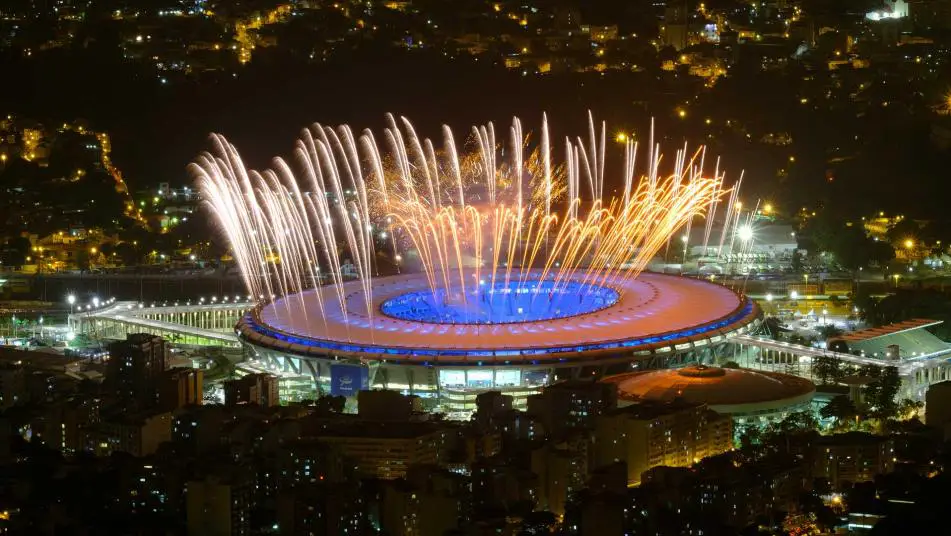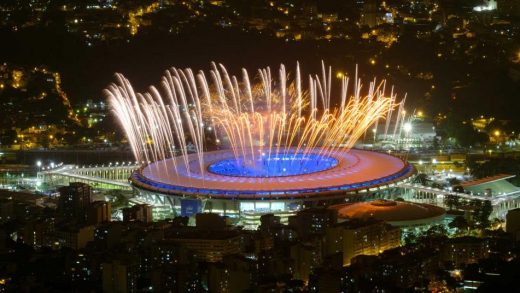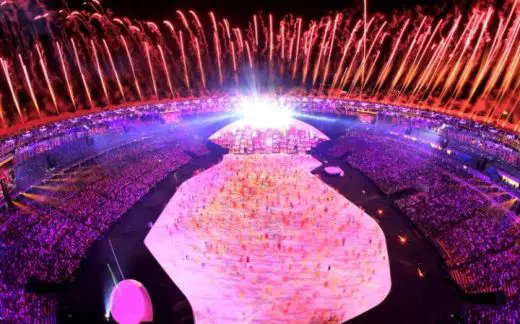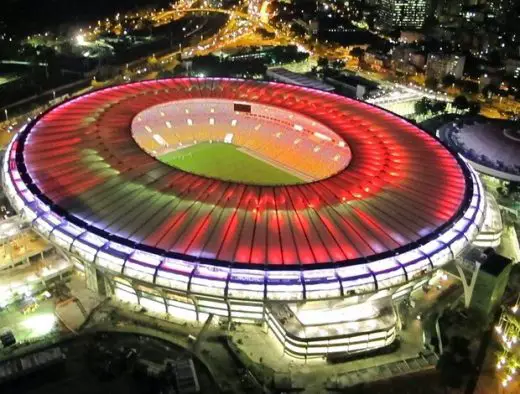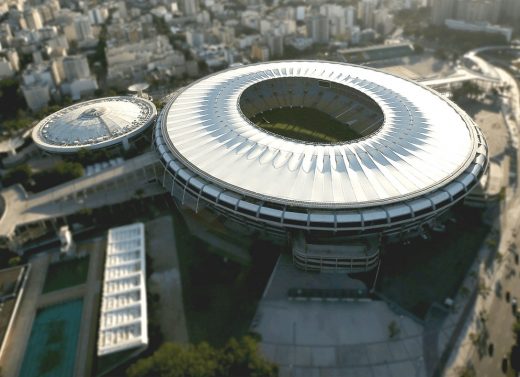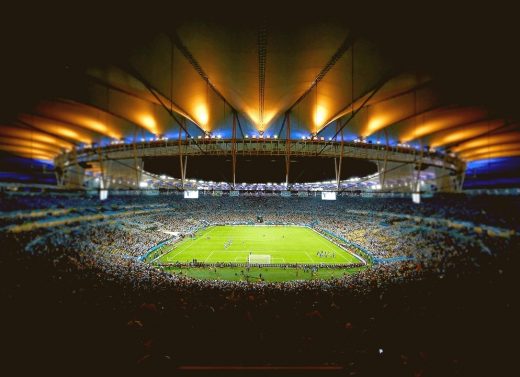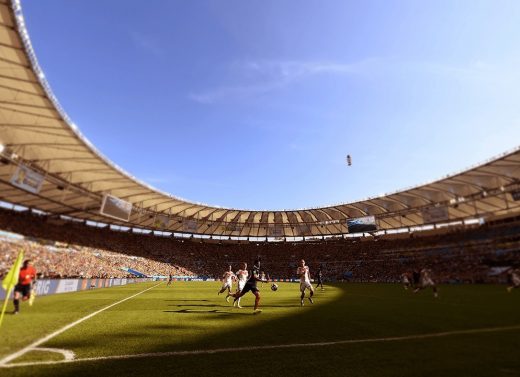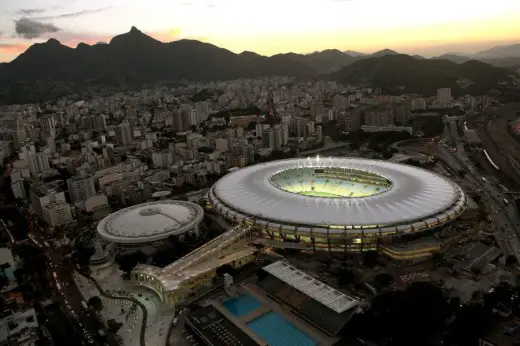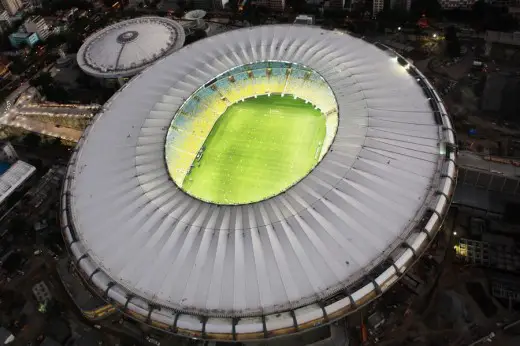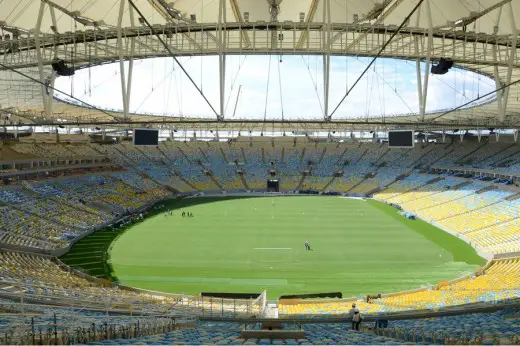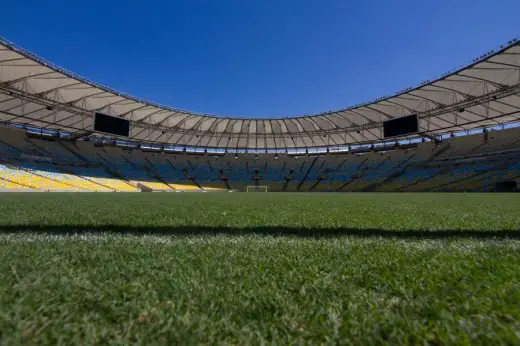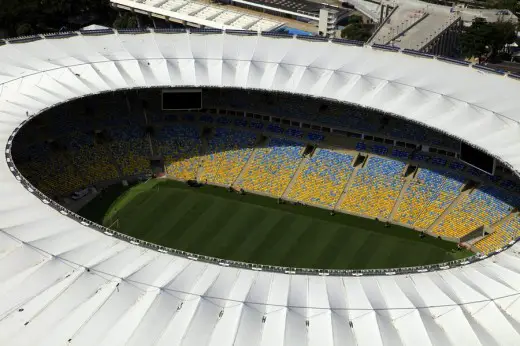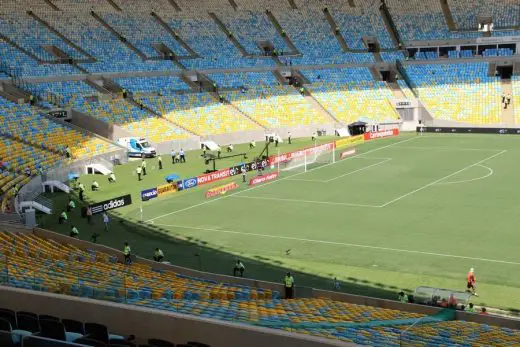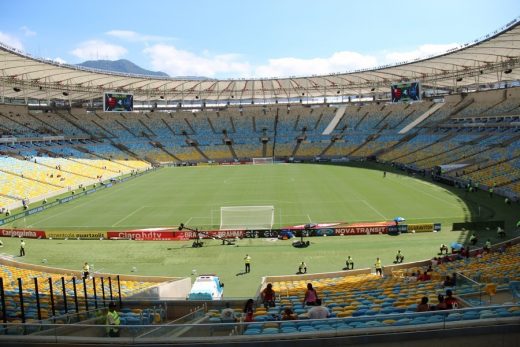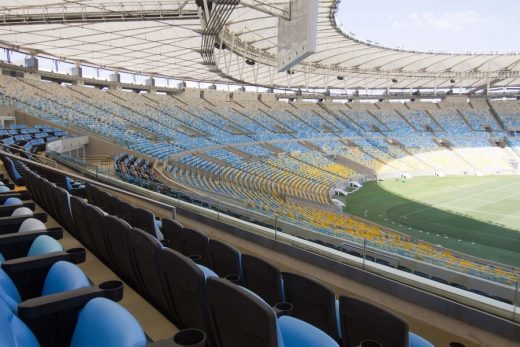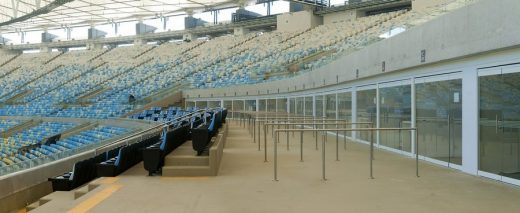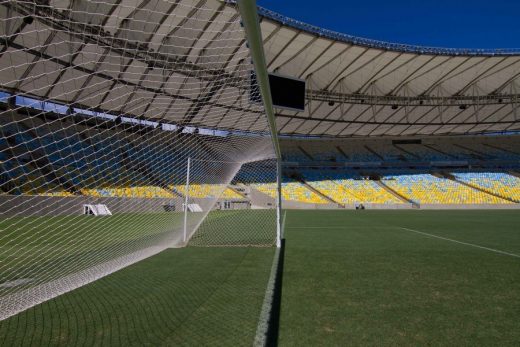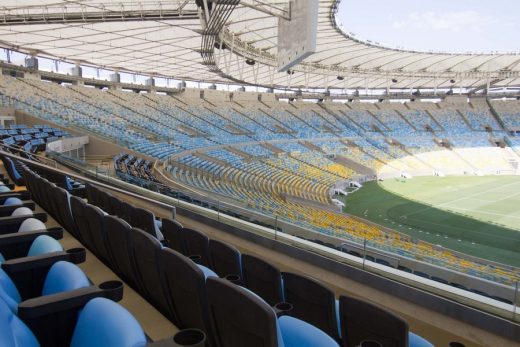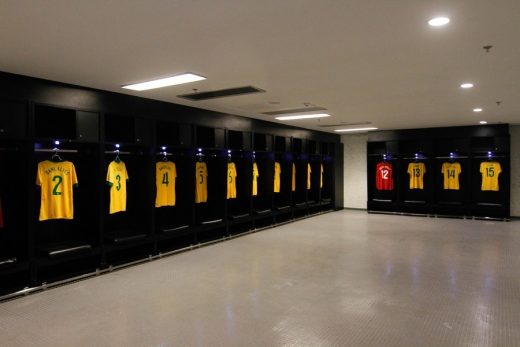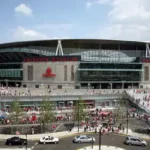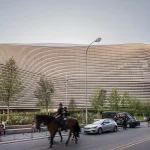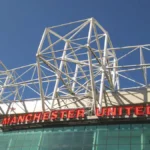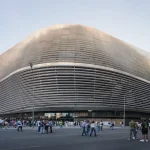Maracanã Stadium Rio 2016 Venue, Brazilian Olympics Arena Architecture, Brasil Design Images
Maracanã Stadium Rio 2016 Venue
Estádio Mário Filho: Rio de Janeiro Olympics Building design by Fernandes/Arquitetos Associados
Location: Rua Professor Eurico Rabelo, s/nº, portão 18, Maracanã, Rio de Janeiro, Brazil
Design: Fernandes/Arquitetos Associados
The legendary Maracanã Stadium staged the Rio 2016 opening ceremony on the 5th of August.
post updated 12 Jan 2021 ; 6 + 5 + 2 Aug 2016
Maracanã in Rio de Janeiro
Famous Brazilian footballer Pele was unable to light cauldron flame at the Rio Olympics 2016 Opening Ceremony so Brazilian marathoner Vanderlei De Lima lit the cauldron at the Rio Games (Braziian tennis player Gustavo Kuerten was reported to be due the honours).
Vanderlei de Lima lights the Olympic flame:
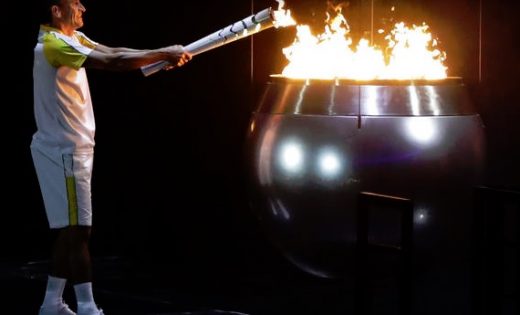
photo : AP Photo/Jae C. Hong
The Olympic cauldron is small compared to London 2012 Olympic Cauldron by designers Heatherwick Studio:
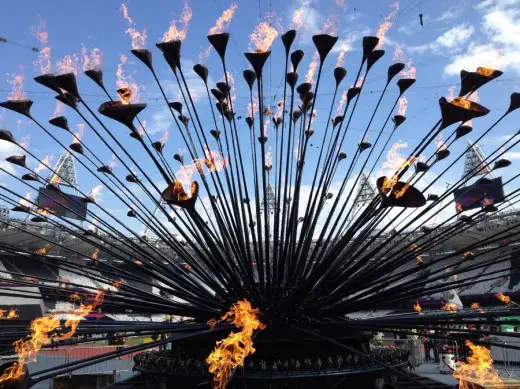
photo © Heatherwick Studio
but the kinetic sculpture behind it is beautiful. Brazilian officials wanted this cauldron smaller than most, not due to financial constraitns, but as a reminder to reduce global warming caused by fossil fuels and greenhouse gases.
Maracanã Stadium Rio 2016 opening ceremony – fireworks
The cauldron represents the sun and spirals that rotate around it represent life. It was commissioned by kinetic wind sculptor Anthony Howe, of Washington. The sculpture is 40 feet in diameter and weighs two tons.
Redevelopment of the stadium ahead of the Rio Olympics has been limited, as it was fully updated for the recent football World Cup.
Construction of this famous Brazilian stadium building began in 1948 and was completed in 1950.
AVENIDA MARACANÃ – MARACANÃ
The Maracanã Stadium building is to host the Rio 2016 opening and closing ceremonies and the decisive matches of the men’s and women’s football tournaments (both finals and one semi-final in each). This iconic Olympics venue was modernised for the 2014 FIFA World Cup.
Maracanã, officially called Estádio Mário Filho, was built to serve as the flagship venue for the 1950 World Cup. It was meant to become the biggest football stadium in the world.
Maracanã hosted the opening match of the 1950 World Cup between Brazil and Mexico. It hosted four more matches in the first round group stage and a further three in the second round stage, among which was the final, a match between Uruguay and Brazil.
The official attendance of the final was about 173,000 paying spectators, but over 200,000 are believed to have witnessed the game live from the stands.
The stadium building was officially renamed in 1966 following the death of Brazilian journalist Mário Filho, but most people have kept referring to the stadium as Maracanã.
Maracanã hardly changed until the 1990s, when a deathly accident and resulting safety measures greatly reduced capacity. Shortly later it got converted into an all-seater. It was renovatedin 2000, then again in 2006.
When Brazil got awarded the 2014 World Cup in 2007, it was clear that Maracanã was destined to host the final and would therefore need a massive redevelopment.
Building works started in 2010 and involved the complete rebuilding of the bottom tier and the installation of a new roof with a capacity of 79,000 seats as a result. The original two-tier seating bowl configuration was demolished. It was replaced with a new one-tier seating bowl. The stadium reopened on 2 June 2013 with a friendly international between Brazil and England (2-2).
Maracanã hosted seven matches during the 2014 World Cup, including one quarter-final and the final. It also hosted several matches and the final of the 2013 Confederations Cup. Maracanã is owned by the state of Rio de Janeiro, but has grown to become the regular home of Flamengo and Fluminense.
Other Rio clubs such as Botafogo and Vasco da Gama also occasionally use the stadium for high-profile matches. Gustavo Kuerten also known as Guga, is a retired former World No. 1 tennis player from Brazil.
Building photography: Erica Ramalho and Marcelo Santos
Maracanã in Rio de Janeiro information / images from Fernandes/Arquitetos Associados
Cerimônia De Abertura Rio 2016 – Pira Olímpica é acesa por Vanderlei Cordeiro de Lima:
Maracanã Stadium video on YouTube
Location: Rua Professor Eurico Rabelo, s/nº, portão 18, Maracanã, Rio de Janeiro, Brazil, South America
Architecture in Brazil
Brazilian Architecture Design – chronological list
Amazon Sports Complex, Manaus, east Brazil
Design: gmp – von Gerkan, Marg & Partners
Amazon Sports Complex in Brazil
Arena Corinthians Stadium in São Paulo
Website: Rio 2016 Olympics Venues in Brazil
Symbolic Brazil World Cup Structure Competition
Comments / photos for the Maracanã Stadium Rio 2016 Venue – World Cup Venue page welcome
Website: Maracanã Rio 2016 Arena

